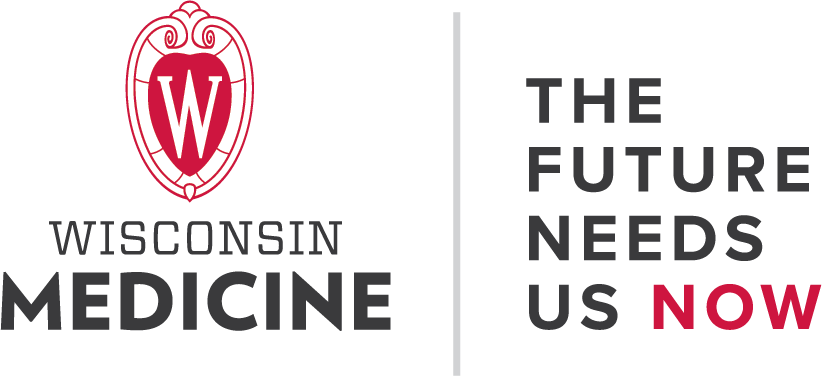Cancer survivor works to provide hope through research
Colorectal cancer is the third most common cancer in the United States. For Dustin Deming, a medical oncologist and laboratory researcher at UW Health | Carbone Cancer Center, colorectal cancer first became personal in 2012, when he received his diagnosis at age 31. The news came two weeks after becoming a clinical instructor at the University of Wisconsin School of Medicine and Public Health, and 12 weeks after becoming a father for the second time. “It’s horrifying,” Deming said. “I was already scheduled to see my patients with colorectal cancer, so it’s one of those things where I could barely take my mind off of cancer.”
Deming was diagnosed at a much younger age than the typical colorectal cancer patient. The median age of diagnosis is 66, according to the National Cancer Institute. However, there has been an increasing trend of diagnosis in younger adults, and the recommended age for colonoscopies recently changed from age 45 to 50.
Treatments for Deming’s cancer included surgery, chemotherapy and radiation, and he continued working as much as he could during that time. Deming was cancer-free for eight years when he had a recurrence in 2020. He had to undergo more surgery, radiation and chemotherapy over the last three years to become cancer-free once more.
“When I was first diagnosed with stage 3 cancer, it was a 40 to 50% chance I would have a recurrence,” Deming said. “So, I was ready for that, but after being cancer-free for more than five years, there’s only a 1% chance of cancer returning, so that’s what makes my experience particularly rare.”
While his experiences now bring him a special connection to his patients, Deming did not plan to treat patients when he started medical school. His focus was on laboratory medicine, and he enjoyed it, he said. However, a faculty mentor who split his time between research work and seeing patients inspired Deming to explore both roles. “I got to see how the work I was doing in the lab provided hope for patients,” he said. “I could see how the time in the clinic provided new directions for the research in the lab. They fed off each other, which I found extremely rewarding.”
Deming’s lab focuses on creating precision medicine treatments for different subtypes of colorectal cancer. As part of that work, his team grows organoids from patient cancer tissue to recreate those genetically unique subtypes and provide a more authentic testing model.
Historically, cancer research relied on growing cell cultures in dishes for study, but the cells do not act the same way as they would in the body, so study results would not always translate to clinical testing. Also, certain types of cancer just would not grow in those artificial conditions.
With the organoids Deming’s team develops, they can study a greater variety of cancer subtypes with a more durable model that offers better odds of translating their findings to clinical success. These organoids are being used for genetic testing, evaluating drug effectiveness and new therapy combinations. They are also evaluating how organoid responses compare with patient tumors in one-to-one treatments.
“The idea is, just like we do with an infection, where we culture the bacteria to see which antibiotic works best, we’re trying to do the same thing with patient samples and chemotherapy,” he said. “And excitingly, we’ve had a ton of success with this.”
He and Dr. Melissa Skala, a professor of biomedical engineering and medical physics at UW–Madison, have recently received a new grant from the National Cancer Institute to use their organoid models to systematically test a large library of drugs in the hopes of finding novel combinations that can benefit colorectal cancer patients.
Deming said initial screens have already yielded some exciting combinations to explore. “The whole point of our research is to make things better for patients. I went into cancer care and cancer research to provide hope for my patients,” Deming said. “Does the hope I intend to provide for other patients give me hope? Absolutely, it does.”
Deming’s work received philanthropic funding through the Andy North & Friends Initiative and Garding Against Cancer and other fundraising activities.
While being a cancer survivor gives Deming an added layer of understanding and rapport when talking with his patients, he, in turn, gains inspiration and hope from them. “We’re all in this together,” he said.
“I start every new visit by telling the patient who I am, what I’ve been through and the fact that I’ve been in their shoes. I remind them, I’ve been through it, there’s life on the other end of it and together we are going to make the best of this situation.”
Share Your Story
Did UW Health or the UW School of Medicine and Public Health have a life-changing impact on you or someone you love? Be part of the Wisconsin Medicine story by inspiring others with your story. Share it now.

